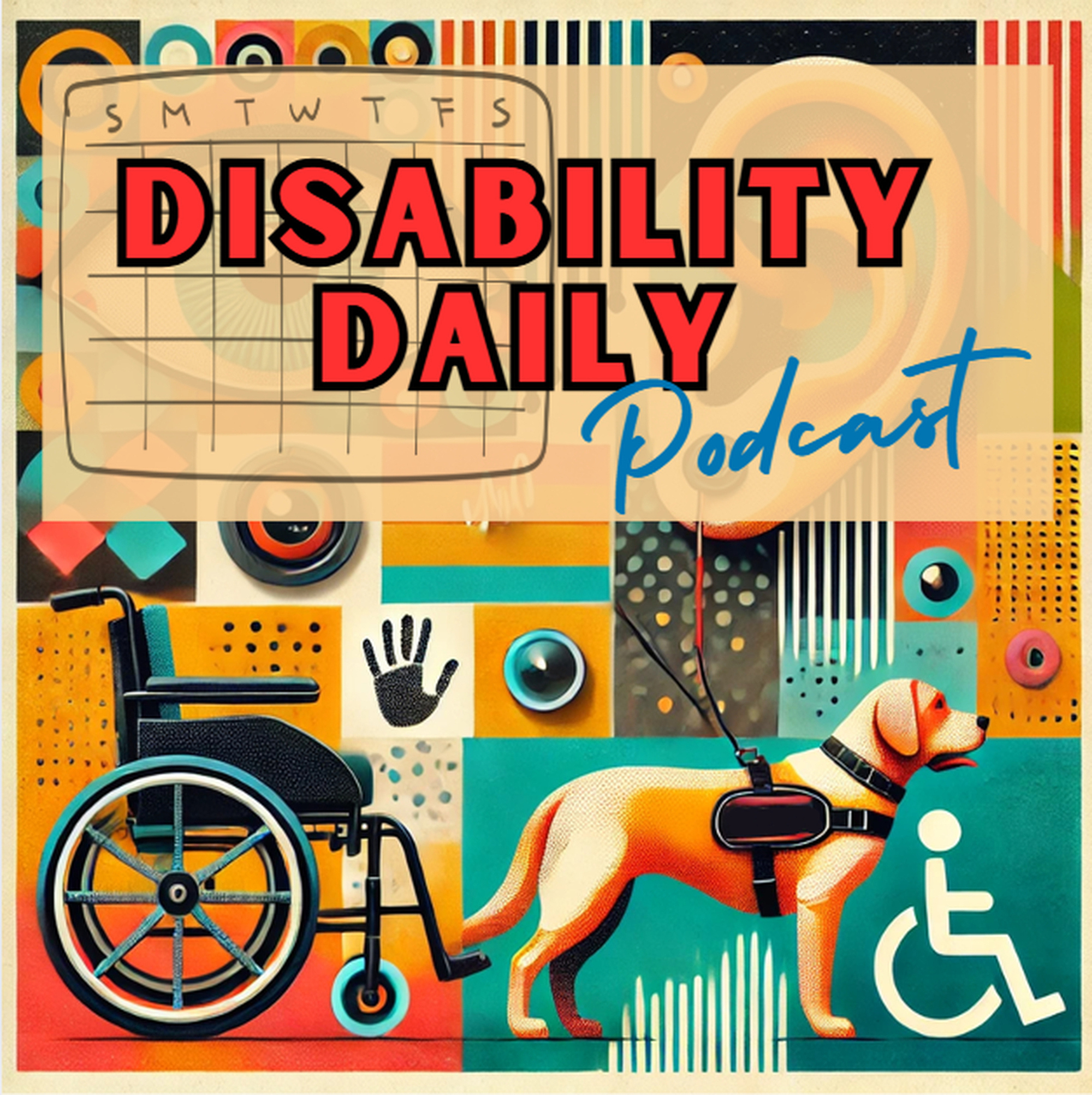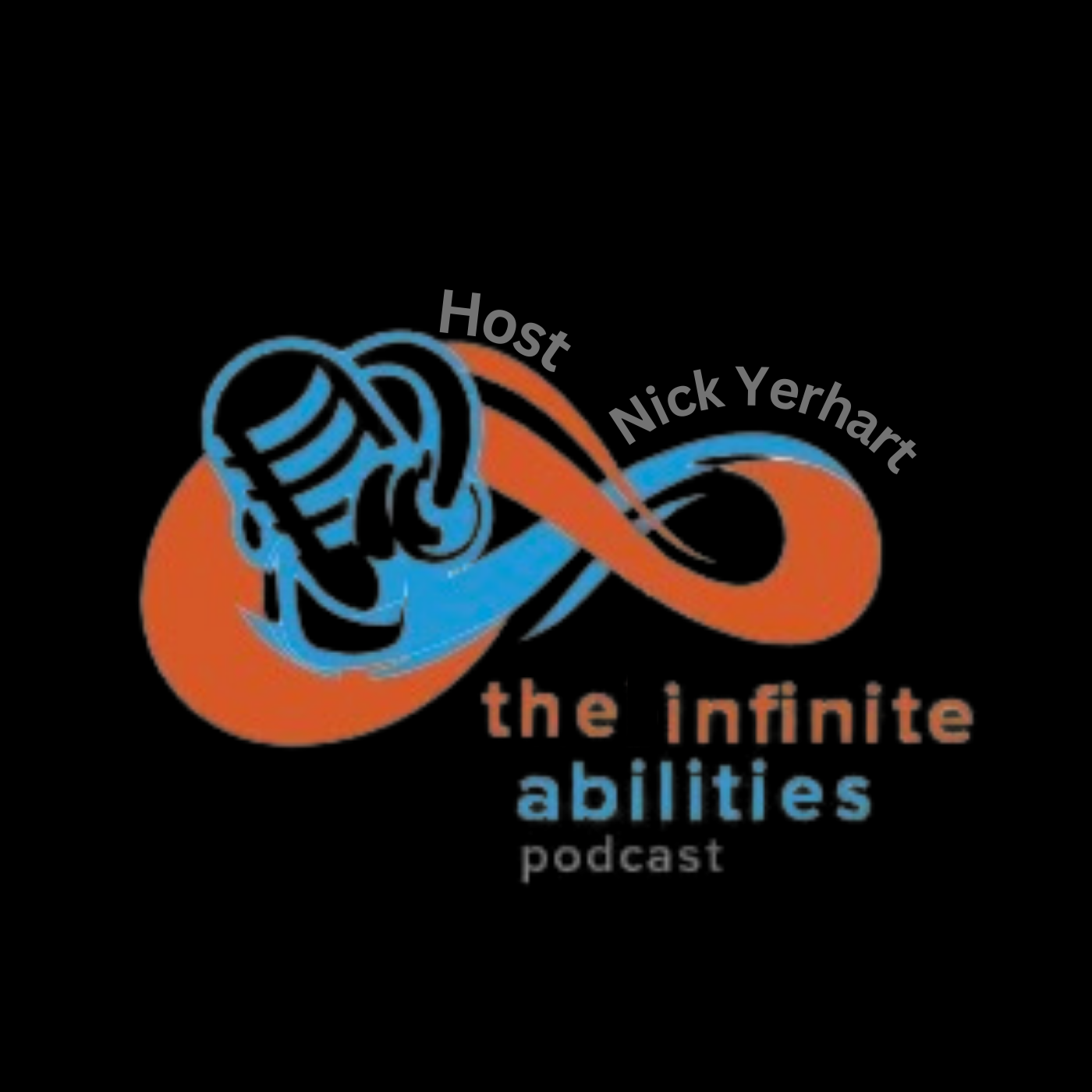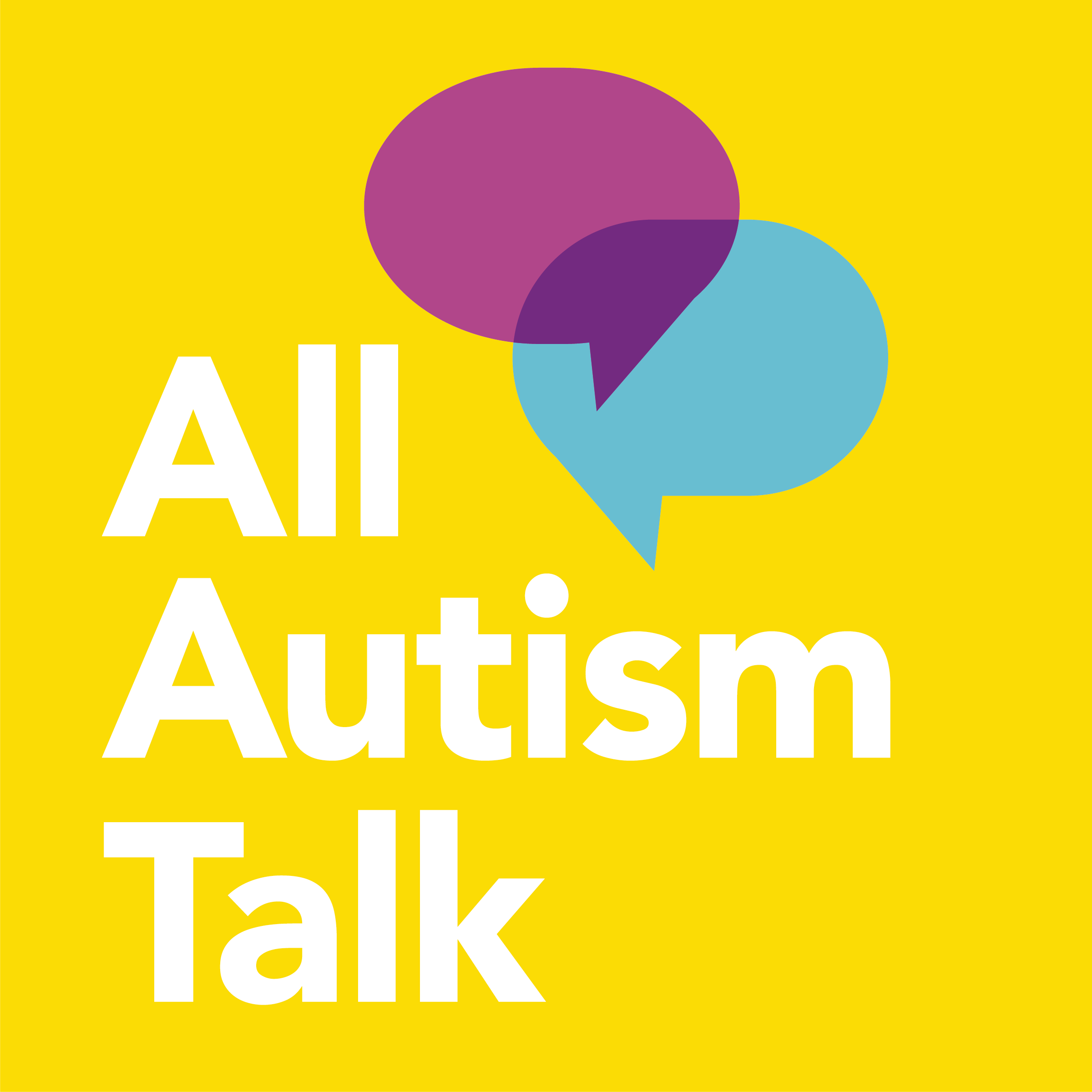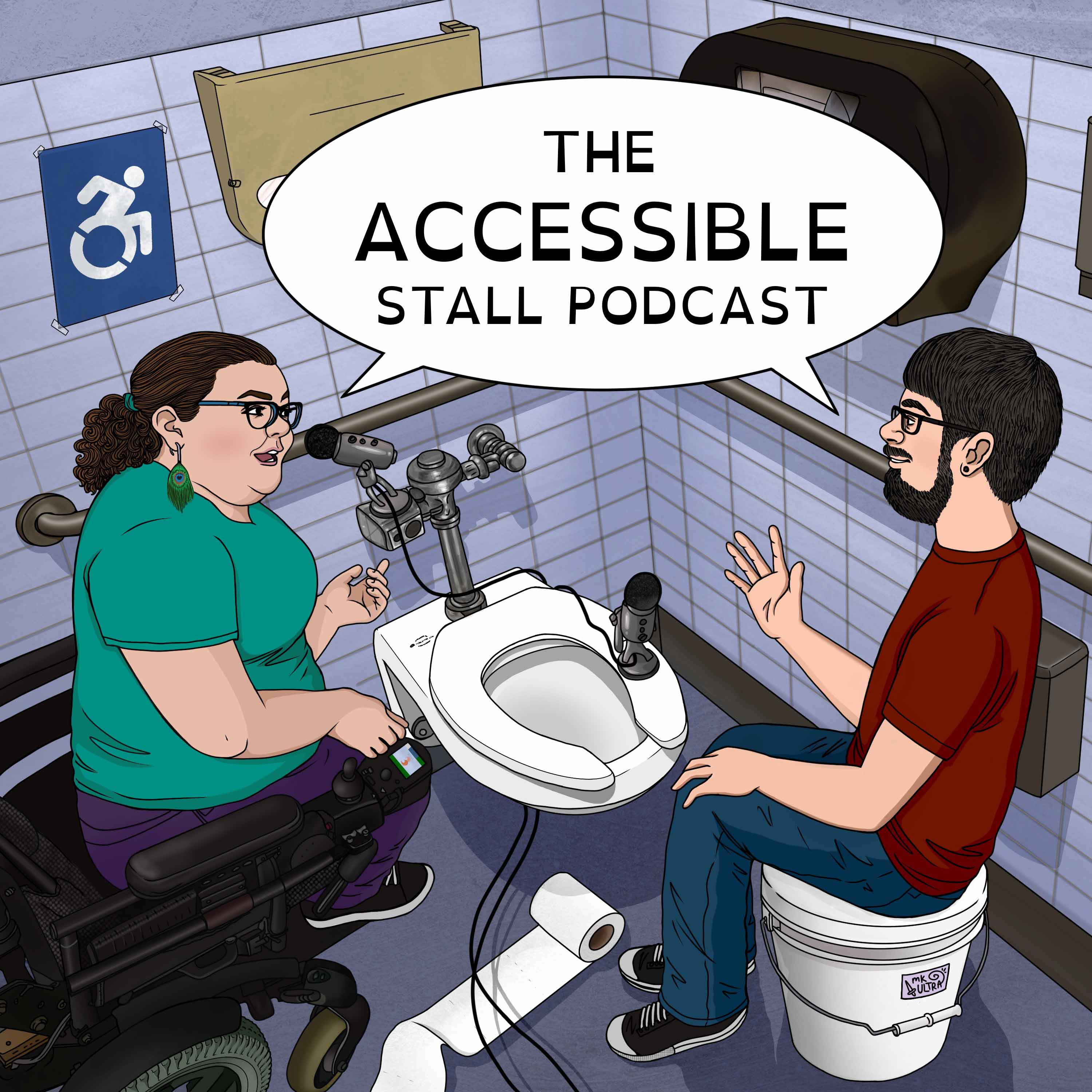
The Post Secondary Transition Podcast
A podcast focused on the ins and outs (and everything in between) of the secondary transition process for families of students with disabilities! Hosts Meghan (Smallwood) and Patrick (Cadigan) serve as supportive guides, leading families step-by-step up each rung of the transition ladder.
Also check out our parent website: https://www.postsecondarytransition.com
The Post Secondary Transition Podcast
070. ABLE Accounts vs. Special Needs Trust
Host Meghan (Smallwood) and (Patrick Cadigan) discuss estate planning for individuals with disabilities, focusing on ABLE accounts and special needs trusts. They review how ABLE accounts, available in over 45 states, can be used for various expenses like transportation, medical bills and education. They also cover how a special needs trust is managed by attorneys to ensure funds are used for a beneficiary's sole benefit and other useful information. Join the conversation!
Episode Keywords:
estate planning, ABLE account, special needs trust, SSI, Medicaid, financial management, disability, public benefits, assistive technology, guardianship, power of attorney
Links:
IRS- ABLE Accounts Information (site)
ABLE National Resource Center (site)
Special Needs Trust Information (site)
Maryland (specific) Links/Supports:
Maryland ABLE Accounts (site)
To download a copy of a transcript for this episode or any of our previous conversations, click here.
Also visit our Podcast webpage to find links to all of our other discussions; go to www.p2transition.com.
Additional information about post-secondary transition can be found at our website.
The Post-Secondary Transition Podcast Facebook page.
Visit our YouTube Channel to find additional video resources.
Intro/Outro music by AudioCoffee from Pixabay.
Transition music by Joseph McDade from Transistor.
Meghan, welcome. This is the Post Secondary Transition podcast where we have conversations around the ins and outs and everything in between of the transition process for families of students with disabilities. I'm one of the hosts. My name is Meghan Smallwood, and I am a public school transition coordinator. And as always, I have my co host with me.
Patrick Cadigan:My name is Patrick Cadigan. I am also a public school transition coordinator, and here we go. We are back to have another conversation around the Post Secondary Transition process for families. Okay, that was a terrible setup. All right, Meghan, what are we talking about today?
Meghan Smallwood:Today we're going more into that estate planning area. When you think about what to do with finances for your individual with a disability. And I know a lot of families will say, well, they don't really have a lot to worry about when they think of assets, but if you think about money coming in from SSI, or, let's say, somebody leaves them a large sum when they pass away, you've got to do something with it so it doesn't impact the SSI. So there are options, and that's why they're important to know what an ABLE account and a special needs trust is.
Patrick Cadigan:Okay? So then we'll go ahead and we'll dive into it. Why don't we start then with an ABLE account? What So my understanding, and I don't know a lot about it, but my understanding, is that the ABLE accounts were set up. They were set up specifically for a reason. What do families need to know?
Meghan Smallwood:Yeah and I was just trying to see how many states there are now that have ABLE accounts, I believe. Well, the first able program opened in 2016 and now I think there's over 45 I'm not sure of the exact number, but Maryland, obviously being one of them, it is a 529 A which is related to that college savings account, which is the 529 it is not part of SSI. It's not part of Medicaid. However, like I mentioned before, it kind of gets involved with SSI because, like I said, you can have more than $2,000 in any account with the individual's name on it for SSI purposes. So you need that money to go somewhere if you're not spending it down each month. So an ABLE account is a good option to hold that money. It's not taxable, it's easy to use and get the only STIP well, not the only stipulation. One of the stipulations is that it cannot exceed $15,000 annually. So if you have a money that's given to the individual as a gift, you can put it into this but if it's you know, above 15,000 then that's when a trust might come into play. You can have up to$100,000 without jeopardizing your SSI in this ABLE account. And like I said, it will not affect the Medicaid part either, and it's not used as assets, so you're safe and protected from that. It can be used for a variety of things. And actually, I was going to mention about the website, which is www dot Maryland able.org but it's got a plethora of information on there, and it really goes into detail about examples of what the money can be spent on. It can cover anything basically relevant to the individual with a disability, as long as it's being used for their purposes. So transportation, any kind of basic living expenses, which includes utilities for the house they live in. It can help with any additional fees you might have from medical bill or any kind of equipment that might be needed, such as wheelchairs or walkers. It can help towards their rent or mortgage of a house. It can help if they are going to further their education and they're paying for trade school or books for a college class. It helps with work related uniforms for employment, any kind of licensing or certification fees, assistive technology, obviously, I mean, the list just goes on and on of what it can be used for. So it's not like the money goes into this account and you're not allowed to touch it. It's actually fairly easy to get access to the difference between this and special needs trust, which I'll go into more detail about, is that with the trust, there's more justification needed, and typically a lawyer is involved in that process, you can have a special needs trust and an ABLE account that is allowed for ABLE accounts, though, the one thing you have to remember is that either guardianship of property for the individual is in place, or. A power of attorney. And obviously this is after they're 18, but power of attorney is perfectly fine to have to help manage the account. So like I mentioned, there's a number of states that ABLE accounts are in, and it can actually roll over from another state. So let's say you have plans to move out of Maryland eventually, if you're moving to a state where ABLE accounts are they, they can follow you there, so you don't have to worry about closing something and opening it again. Like I said, did you not need to not have SSI to open the account? But it is a benefit if you're receiving SSI and you're trying to keep that money down, and it's fairly easy to open. I know that sometimes around the state, and I know in our county, we get emails about pop up like ABLE account sessions where someone will be available to answer questions or help you open the account. They're wonderful with their assistance in the process, but you can easily go on to their website, which, again, is www.marylandable.org so to enroll and manage your account, and they also offer live chat, online requests and customer support.
Patrick Cadigan:And there will be a link in our show notes to that site. Now we obviously recognize that not everybody that is listening is going to be in the state of Maryland. So we also have an additional resource for you guys. It's the ABLE National Resource Center. Now this has a whole host of additional links that compare the different states. That can do a state plan search, or you can even select a state program. So good. This is a great resource to use if you are not necessarily in the state of Maryland, or even if you're in the state of Maryland, again, there will be a link to that in the show notes. All right, so I would say that's a fairly, you know, broad overview of ABLE accounts. And again, you had talked about special needs trust. So what is the big overarching difference between the two?
Meghan Smallwood:So for special needs, trust, like I said, typically, this involves going to the attorney, and that is just to make sure that the trust funds are just decided how to use them and everything is in order with them. I think one of the biggest things to know is that the primary purpose is to provide for the beneficiary's needs and also without jeopardizing their eligibility for SSI and other public benefits. So you can supplement, rather than supplant these benefits. So again, the survivor needs trust can be used for such a wide variety of things, and I couldn't even go, like I was going through the list, and I'm like, Huh, that's good to know. Like, I think there's a fear that when you put money into accounts like this, that you it's almost like a savings account, like you leave it there and you're not allowed to touch it for certain things. But think of like tickets for travel or vacation. This is a perfect example of what the money from a special needs trust can be used for. It can be used for memberships. It can be used for clothing. I mean, obviously for DDA purposes, they will be covering a variety of things like assistive technology if it's included in your person centered plan. But you know, this is nice to have if it's not covered, and other things that come up along the way. So I think that the most important thing to recognize is that the assets need to be used for the beneficiary, sole benefit. Okay, so the prime benefit has to be them, and not for someone else. And I think that is one thing, especially with the special needs trust, that they will keep a close eye on. There are, you know, certain things that it cannot be used for, such as gifts for people, and that's the same for ABLE account as well. Larger purchases, obviously, are loans to other people. It has to be used at the benefit of the beneficiary. I would also say, if you're looking at a special needs trust, you definitely want to find an attorney who specializes in it or is very familiar with it. And I know in our county, we have a number of them, and some of them actually will give these kinds of informational sessions about special needs trust and other estate planning on a monthly basis. But you want someone who's knowledgeable and then kind of lead you through it the proper way.
Patrick Cadigan:Very cool. I hate to say it. I know that this is a really quick and/or short discussion. Both Meghan and I have been hammered at work lately. And for those not in the know, over here on the East Coast, or at least where we are, we keep getting these snow days, which I used to be a fan of, and now that I have changed my job and I am doing transition coordinating, I actually don't like snow days because they completely mess up my schedule, but we are planning to come back later with i. Obviously more conversations, and we look forward to that, and we will catch up with you guys soon.
Meghan Smallwood:Yep, sounds good.
Patrick Cadigan:You'll find all the links to the information from our conversations in our show notes. We would love for the information from this and all our other discussions to reach as many families as possible, and we need your help to do that. You can find our conversations at www, dot p2 transition.com, like, follow and share out the podcast. Our conversations are posted to all the major platforms, including Apple podcasts, Spotify, YouTube music, and that's just naming a few. So please share and share often.
Meghan Smallwood:Please also check out our YouTube channel. Now that we've done some of the leg work for you by curating videos of topics that revolve around transition, we have playlists for guardianship alternatives to guardianship ABLE accounts, and there's more to come, so please be sure to subscribe there as well. And then finally, check out our website, which is full of information and links to resources around the transition process. So open your web browser of choice and surf to www.postsecondarytransition.com and we thank you so much for the time you spent with us, and look forward to talking again soon.
Podcasts we love
Check out these other fine podcasts recommended by us, not an algorithm.

T21Mom-A Down Syndrome Podcast
T21Mom.com
The Collaborative IEP
Ashley Barlow
Disability Daily Podcast
Katie Healey, PhD, CPACC
The Infinite Abilities Podcast
Nick Yerhart
All Autism Talk
All Autism Talk
The Accessible Stall
Kyle Khachadurian and Emily Ladau
Disability Deep Dive
Disability Rights Florida
STAY Tuned: Supporting Transition-Age Youth with mental health conditions
STAY Tuned at Transitions to Adulthood Center for Research
Moms Talk Autism Podcast
Shannon Korza, Brittney Crabtree, Tash Dillmon, and Jean Mayer
Your Child's Brain
WYPR Baltimore


